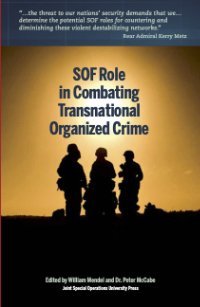By Steven S. Dudley
The U.S. Government estimates that 90 percent of the illicit drugs entering its borders passes through the Central American Isthmus and Mexico. Of this, close to half goes through Central America.1 Functioning as a transshipment point has had devastating consequences for Central America, including spikes in violent crime, drug use and the corroding of government institutions. Mexico receives most of the media attention and the bulk of U.S. aid, but the Northern Triangle – Guatemala, El Salvador and Honduras – have combined murder rates roughly double that of Mexico. While Mexico is having some limited success dealing with its spiraling conflict, vulnerable States in Central America are struggling to keep the organized criminal groups at bay, even while they face other challenges such as widespread gang activity. U.S. and Mexican efforts to combat the drug cartels in Mexico seem to have exacerbated the problems for Central America, evidenced by ever increasing homicide rates. 2 “As Mexico and Colombia continue to apply pressure on drug traffickers, the countries of Central America are increasingly targeted for trafficking, which is creating serious challenges for the region,” the State Department says in its recently released narcotics control strategy report.3 Problems are particularly acute in Guatemala, El Salvador and Honduras, three States with vast coastlines, large ungoverned spaces and the greatest proximity to Mexico. However, geography is only part of the problem. Armed conflicts in Guatemala, El Salvador and parts of Honduras between 1960 and the mid-1990s laid the foundations for the weapons trafficking, money laundering and contraband traffic that we are witnessing today. Peace accords in Guatemala and El Salvador, and police and military reform, only partially resolved deep-seeded socio-economic and security issues, and, in some cases, may have accelerated a process by which drug traffickers could penetrate relatively new, untested government institutions. Despite the gravity of the problem, Central America has had little regional or international cooperation to combat it. Examples of cross-border investigations are few. Communication between law enforcement is still mostly done on an ad-hoc basis. Efforts to create a centralized crime database have failed. Local officials are equally frustrated by the lack of international engagement and policies that often undermine their ability to control crime, especially as it relates to alleged gang members.
Washington DC: Woodrow Wilson Center for International Scholars; Trans-Border Institute, San Diego: University of San Diego; 2010. 30p.











